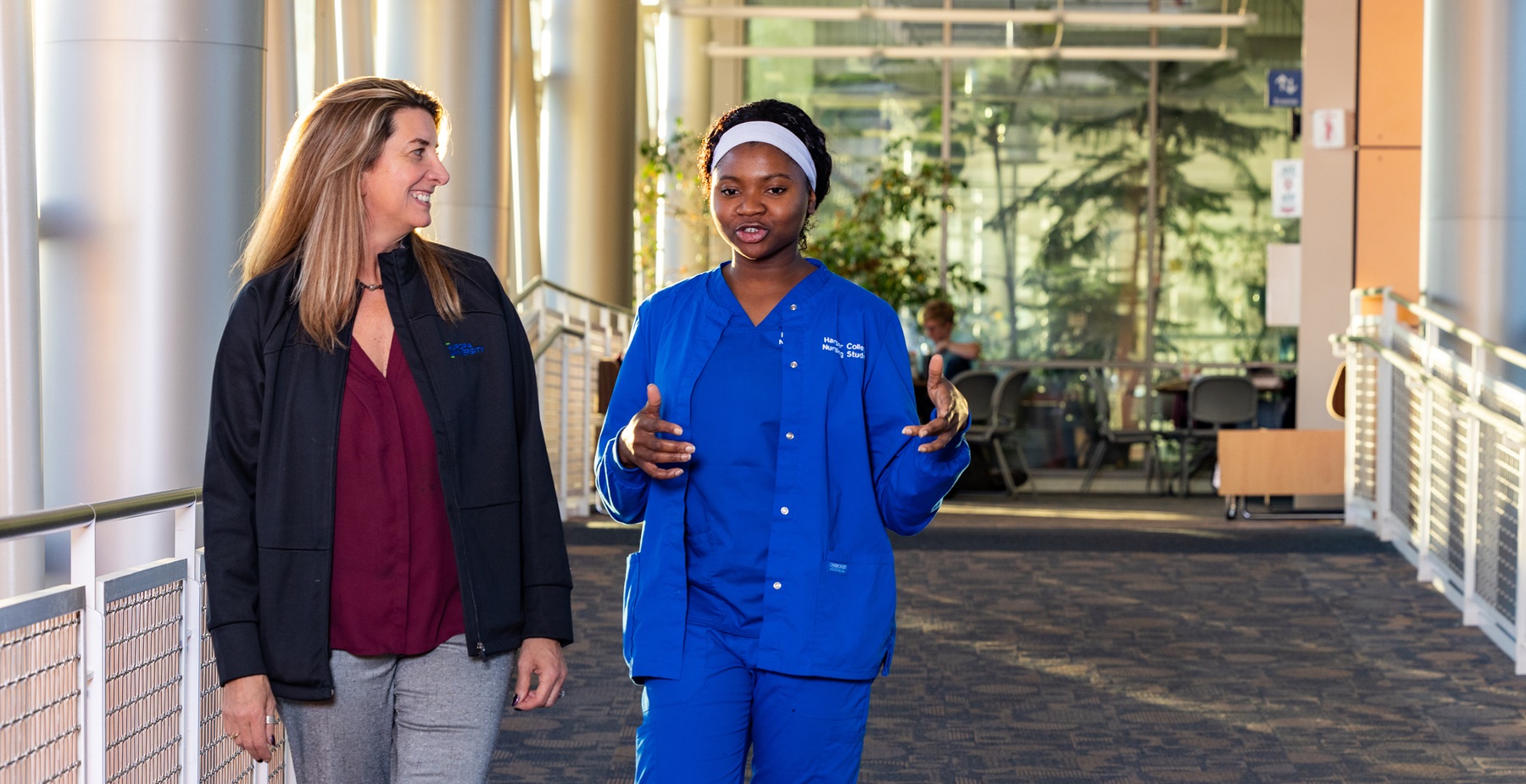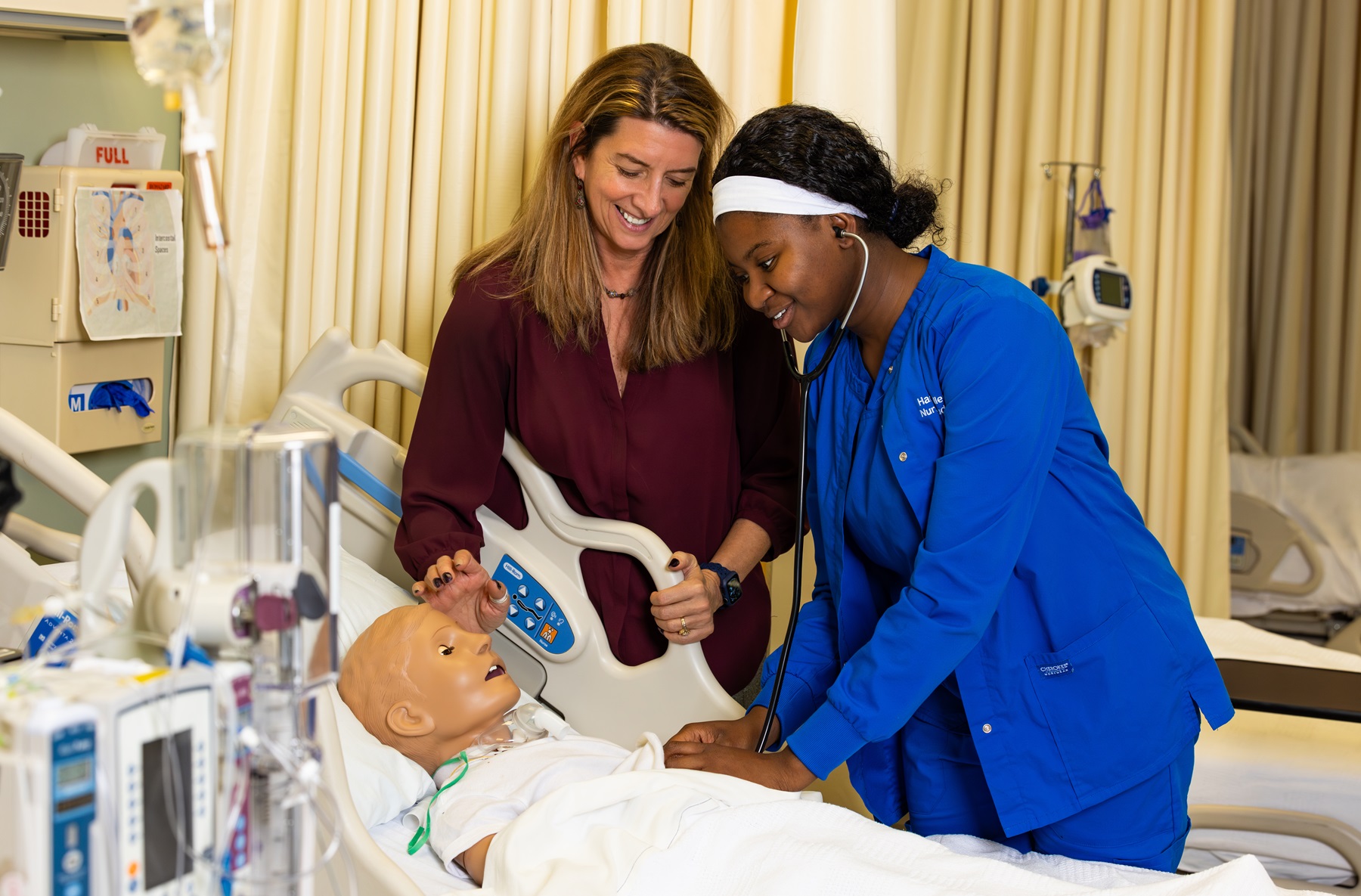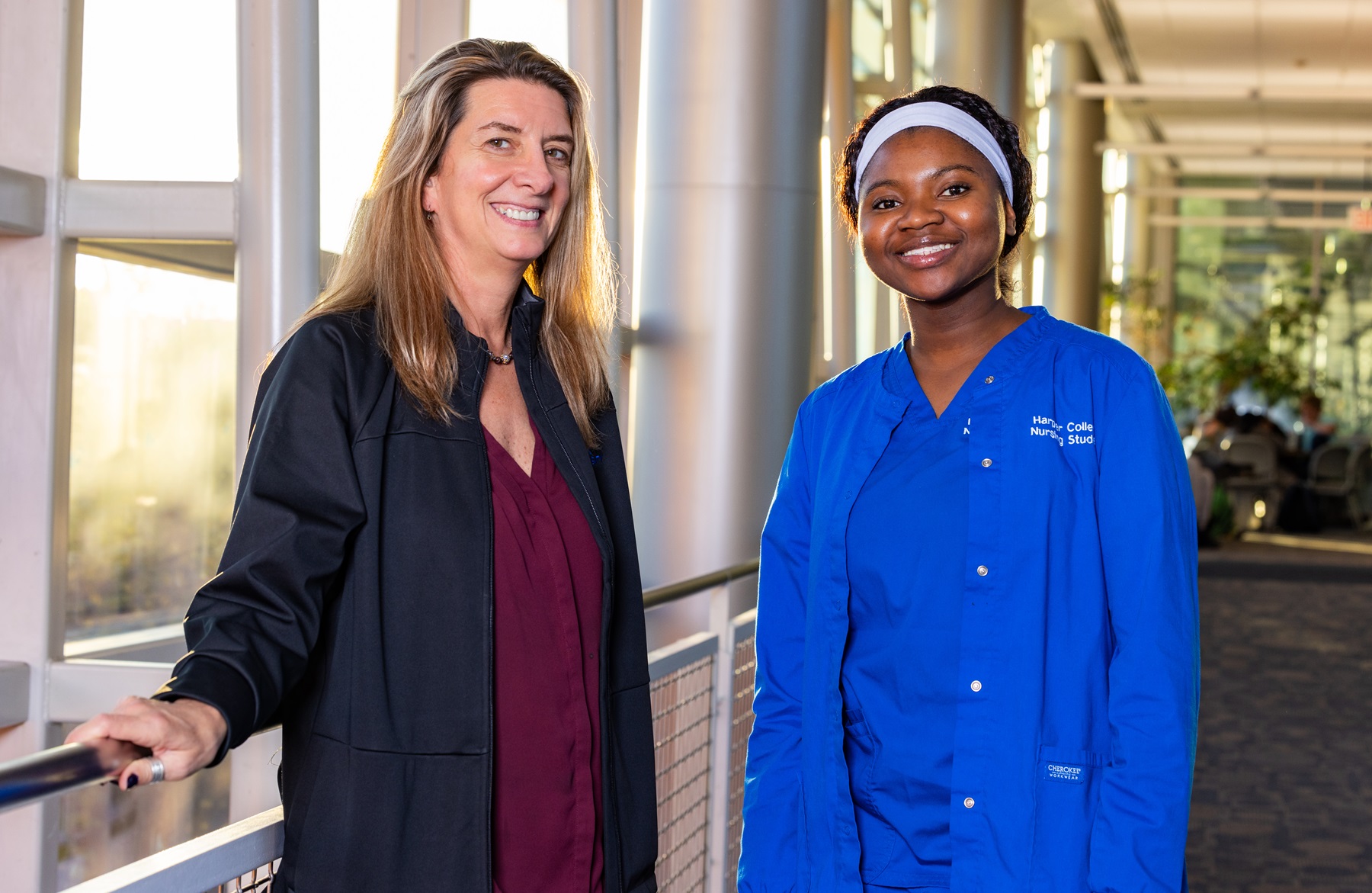Harper College is closed on Friday, April 18, for Reading Day.


Chris Pykett (left), a registered nurse, mentored Sonia Ajakaiye, a Harper nursing student through the Harper College Educational Foundation's Corporate Mentorship Program. The initiative matches students with mentors from local corporations and businesses.
Finding a good job after college isn’t always about what you know, but who you know.
To help students make those all-important connections and build their professional networks, Harper College is expanding its popular Corporate Mentorship Program.
The 2-year-old program, run by the Harper College Educational Foundation, carefully matches students with mentors from local corporations and businesses. Many mentors are Harper alumni.
The mentors and students spend three months talking one-on-one about career goals, obstacles and the mentor’s industry. There’s job shadowing, possibly some hands-on work, or maybe even a paid, part-time job involved. Mentors also pass along those unwritten workplace rules – things you can’t learn in a classroom but are important to know.
When it’s over, the students leave with valuable insight, plus professional contacts who can help them when their job search begins.
“It’s your very own professional development,” said Kristyn Meyer, associate executive director of the foundation/major gifts.

Sonia Ajakaiye, a 21-year-old Harper nursing student, was paired with Chris Pykett, a registered nurse who was directing the Nursing Magnet Program at Northwest Community Hospital. Their mentorship began two years ago, and they’re still in touch today.
At their first meeting, Chris asked Sonia how she could help her meet her goals. They also discussed “success scenarios.” What unit of the hospital would she like to work in? What were some obstacles she faced? What steps could she take to overcome them?
Sonia, a Hoffman Estates resident, shared her frustration over not knowing how to advance her career beyond her current job as a certified nursing assistant. Chris directed her to two paid, part-time jobs at the hospital and helped her fill out the application for the one she liked best. She also encouraged Sonia to take it one step further: find the name of the hiring manager and send that person an introductory email, expressing her interest in the position.
Sonia did that and ended up getting a job at the hospital as a patient care technician on the surgical unit. It’s a job she still has. It involves assisting the staff nurses, monitoring vital signs, and ensuring patients and their families are comfortable.
She works two shifts per week – usually overnights, evenings or weekends – plus has class, clinical training and an on-campus job. It’s a lot to juggle, but Sonia knows it’s positioning her to get a good job when she graduates from Harper in May 2025 with an Associate in Applied Science – Registered Nursing degree.
“I already have a foot in the door,” Sonia said. “When it’s time to apply for a job as a nurse, it should be easier, since I’m already in the system. They know who I am.”
Her Harper education coupled with the Corporate Mentorship Program is providing Sonia with better economic mobility than her parents, who are both independent contractors for American Taxi. The family moved here from Nigeria in 2018.
“What I’m doing is a step up from what my family is used to,” she said.

The Corporate Mentorship Program started in 2022 with just three organizations offering mentors. Now there are 10, with more businesses coming on board in 2025.
The mentors are technology executives, nurses, dental hygienists, architects, finance professionals, lawyers and more.
“We work with all the mentors who approach us,” Kristyn said. “From the standpoint of a foundation, this is extremely unique. We can mobilize social good in these organizations, and that’s what made it work.”
At one point in 2024, a record-high 54 students were matched.
The mentorships are open to any student receiving a scholarship from Harper. They start by meeting with foundation members and sharing their life stories and career aspirations. Then thoughtful student-mentor matches are made. As one example, a Black female accounting student was matched with a Black certified public accountant (CPA) who owns his own firm. He introduced her to two female Black CPAs who worked outside his office.
“She went from having one professional contact to three,” Kristyn said.
While the program doesn’t guarantee a job, it has led to job offers. More often, the one-on-one personal mentorship becomes a building block. For students entering a field where they know no one, navigating the waters is hard. Having someone to help guide them is invaluable.
“By helping them make a connection with someone, they see a possibility that they never even knew was there,” Chris said.
Mentors also benefit from the program, Chris added. She now works as an assistant professor at Aurora University and a contingent clinical bedside nurse at Lurie Children’s Hospital, while working on her Ph.D.
“My personal passion is about making sure that whatever someone chooses to do, they have all the tools they need, and they’re set up to achieve whatever they want,” she said. “I give the students what they need to fly and be free.”
That’s similar to Harper’s mission.
“We’re the community’s college and we want to provide what the community needs,” Kristyn said. “That’s our whole job. That’s the mission.”